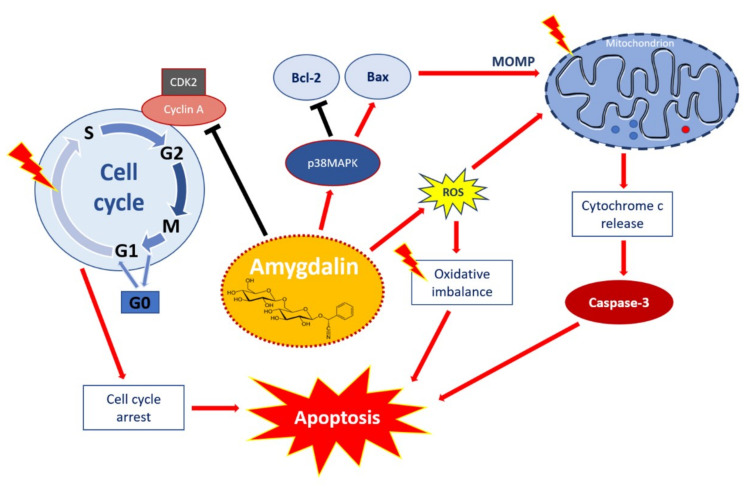Figure 2.
Apoptotic effect of amygdalin via multiple cellular signaling pathways. Amygdalin activates p38MAPK, which affects death stimuli: activates Bax apoptotic proteins, and inhibits Bcl-2 anti-apoptotic proteins. Apoptosis-related proteins induce mitochondrial outer membrane permeabilization (MOMP), a decisive event in the process of cytochrome c release. Activation of the release of cytochrome c as a mitochondrial response to proapoptotic stimuli via the mitochondrial or intrinsic apoptotic pathway ultimately leads to activation of caspases including caspase-3, which induces apoptosis. Amygdalin induces ROS overproduction, which compromises oxidative balance and eventually leads to apoptosis. Amygdalin down-regulates cyclin-dependent kinase 2 (CDK2) and cyclin A, which induces cell cycle arrest in G0/G1 phase. Amygdalin also inhibits cell transfer from G1 to S phase resulting in the inhibition of cell proliferation and growth. ‘Activation’ shown by red arrows and ‘inhibition’ showed by black arrows.

